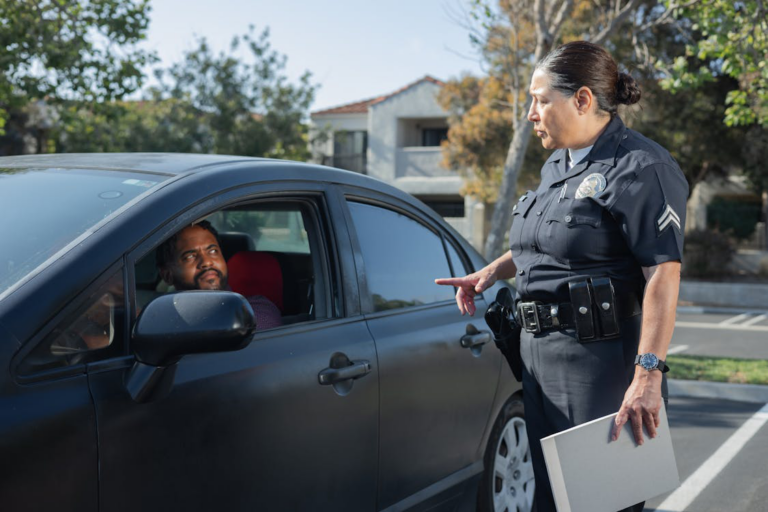When we think of law enforcement professionals, we often focus on physical strength, tactical expertise, or legal knowledge. While these technical skills are vital, another set of abilities plays an equally crucial role in an officer’s success: soft skills. These interpersonal attributes, like communication, empathy, and adaptability, shape how officers interact with the community, resolve conflicts, and navigate difficult situations. In fact, without these skills, even the best-trained officers may struggle to build trust and effectively address the challenges they face daily.
This blog dives into the soft skills that make law enforcement professionals effective in their roles and impactful leaders within their communities. Let’s explore how these skills are used in real-world scenarios and how they can enhance professional success.
Building Trust Through Communication
Effective communication stands at the heart of good policing. It’s about listening, understanding, and responding to the community’s needs. Law enforcement professionals who master the art of communication can de-escalate tense situations, build better relationships with the public, and steer difficult conversations tactfully.
Active listening is an essential component of this skill. Officers can gather crucial information that might otherwise be overlooked by listening attentively to what people are saying (and not saying). This could be the difference between resolving a situation calmly or escalating it unnecessarily.
Moreover, transparent communication helps build trust. When law enforcement professionals can explain their actions and decisions clearly and honestly, it reassures the public that they work with integrity. This trust is vital for maintaining law and order effectively and ensuring community cooperation.
The Power of Empathy in Policing
Empathy is a fundamental soft skill for law enforcement professionals. It involves understanding others’ emotions, perspectives, and situations. Empathy means recognizing someone’s humanity and relating to their experience. A compassionate response can make all the difference in many high-stress or high-stakes situations.
For example, when officers interact with victims of crime or people experiencing mental health crises, displaying empathy can help alleviate tension and encourage cooperation. It shows the public that law enforcement enforces the law and cares about the community’s well-being.
Training to enhance empathy involves being mindful of biases and assumptions. Law enforcement professionals must learn to approach each situation with an open mind, focusing on understanding before judgment. This helps create a safer, more supportive environment for everyone involved.
Problem-Solving: More Than Just the Facts
While officers must understand the law, they must also know how to apply it in difficult situations. Problem-solving is a critical skill for law enforcement professionals, enabling them to quickly think on their feet, adapt to new information, and find solutions.
A good problem solver focuses on immediate issues but takes a broader approach, considering long-term consequences and underlying causes. For instance, when responding to a community dispute, an officer skilled in problem-solving will seek to understand the root of the conflict and suggest ways to prevent it from recurring.
Problem-solving in law enforcement is about creativity and flexibility, especially when dealing with unexpected challenges. Whether handling a crowd control situation or addressing a policy loophole, law enforcement professionals must remain calm under pressure and use critical thinking to navigate obstacles.
Adaptability: Thriving in an Ever-Changing Environment
No two days in law enforcement are alike. The nature of the job requires adaptability, as professionals must adjust to new situations, policies, and technologies. Whether responding to a new crime trend or adapting to shifting community dynamics, law enforcement professionals must stay nimble to perform their duties effectively.
Adaptability also involves being open to learning new techniques and embracing innovative solutions. For example, the increasing use of technology in policing—from body cameras to data analytics—requires officers to stay current on tools that can help them do their jobs better and more efficiently.
Officers who can quickly adapt to changes in their environment or role are better equipped to handle the unpredictable nature of law enforcement work. This adaptability leads to tremendous success in the field and helps officers build resilience in their careers.
Conflict Resolution: Turning Tension into Cooperation
Conflict resolution is one of the most vital soft skills for law enforcement professionals. Peacefully resolving disputes—between individuals or within a community—is essential for maintaining public safety and order. Effective conflict resolution involves understanding the needs and concerns of all parties involved, staying calm under pressure, and finding common ground.
A strong conflict resolution skillset allows officers to defuse potentially dangerous situations and prevent them from escalating into violence. It also promotes fairness and justice within the community, as people feel heard and respected.
Training in conflict resolution is often scenario-based, helping officers practice their responses in various high-stress situations. Law enforcement professionals can foster cooperation and reduce violent incidents with the proper techniques and mindset.
Conclusion: The Role of Soft Skills in Law Enforcement Careers
The importance of soft skills in law enforcement cannot be overstated. Communication, empathy, problem-solving, adaptability, and conflict resolution are just as critical as technical skills in ensuring that law enforcement professionals can protect and serve their communities effectively. Mastering these interpersonal skills allows officers to build stronger connections with the public, resolve conflicts more successfully, and contribute to a safer, more supportive society.
MedFire Jobs & Expo recognizes the value of well-rounded law enforcement professionals who excel in technical and soft skills. If you want to advance your law enforcement career, explore the resources and career opportunities available through MedFire Jobs & Expo. Discover new pathways for growth, access specialized industry insights, and connect with fellow professionals to enhance your career.
Plagiarism Report



